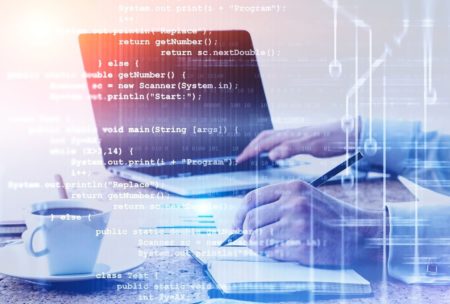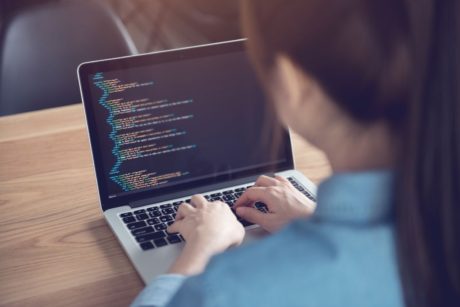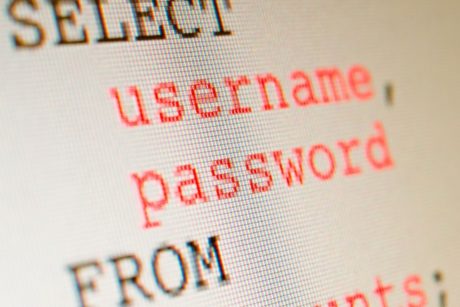This course is designed for those interested in learning how to program in C.
Read more.Instructor
Huw Collingbourne is the technology director at SapphireSteel Software, developers of the “Sapphire” Ruby IDE for Visual Studio and the “Amethyst” IDE for the Adobe Flash Platform. He is the author of The Book Of Ruby from No Starch Press. He runs Bitwise Courses and teaches courses on a range of programming topics. Huw has been a programmer for more than 30 years. He is a well-known technology writer in the UK. For over ten years he wrote the Delphi and Java programming column for PC
Access all courses in our library for only $9/month with All Access Pass
Get Started with All Access PassBuy Only This CourseAbout This Course
Who this course is for:
- Beginners – if you’ve never coded before, you can learn C step by step
- Programmers switching to C from some other language such as Java, Ruby or Python
- Cross-platform developers – there are C compilers for all major operating systems
- Anyone who needs to program C++ or Objective-C. The C language is the place to start
- Newcomers to programming
- Programmers of other languages who want a fast way to C
- Anyone who needs to master C as a basis for using C++ or Objective-C
What you’ll learn:
- The fundamentals of programming – from the ground up
- How to program on a Mac or on Windows
- The nitty-gritty details of the C language
- Advanced topics such as memory allocation, the stack and heap, and binary file IO
Requirements:
- A C compiler and code editor (both are available free)
Software version used in the course:
- C language
The fastest, easiest way to learn to program C on a Mac or Windows. This course will teach you to program the C language from the ground up. You will learn everything from the very fundamentals of programming right through to the complexities of pointers, addresses, and File IO. Maybe you’ve tried to master C before but failed. Or maybe you are new to C or new to programming. If so, this is the course for you!
C is one of the most important of all programming languages. It is used to program desktop applications, compilers, tools and utilities and even hardware devices. The C language is fast and efficient – but it can be hard to learn. Unless you use this course. This course begins with a gentle introduction to C but quickly moves on to explain some of its most confusing features: everything from C’s ‘scoping’ rules to the curious connection between arrays and memory addresses. By the end of the course, you will have a deep understanding both of the C language itself and also of the underlying ‘architecture’ of your computer.
What am I going to get from this course?
- Master C programming concepts from the ground up
- Use the source code examples to learn step-by-step
- Understand the special features of C: pointers, header files, null-terminated strings, buffers, IO
- Videos explain everything in minute detail
- Read the supplied eBook, The Little Book Of C, to explore the topics in even more depth
- Test your understanding with end-of-section quizzes
Take this course today and learn how to program C.
Our Promise to You
By the end of this course, you will have learned how to program in C.
10 Day Money Back Guarantee. If you are unsatisfied for any reason, simply contact us and we’ll give you a full refund. No questions asked.
Course Curriculum
| Section 1 - Getting Ready | |||
| Welcome To The Course | 00:00:00 | ||
| C Editors And IDEs | 00:00:00 | ||
| FAQ: Read This First! | 00:00:00 | ||
| Install CodeLite (Windows Or Mac) | 00:00:00 | ||
| Install A C Compiler On A Mac | 00:00:00 | ||
| Introduction To CodeLite | 00:00:00 | ||
| Programming C With NetBeans | 00:00:00 | ||
| Importing Projects Into NetBeans | 00:00:00 | ||
| Compiling C Programs At The System Prompt | 00:00:00 | ||
| Using Visual Studio | 00:00:00 | ||
| The Little Book Of C | 00:00:00 | ||
| C Source Code Archive | 00:00:00 | ||
| Section 2 - C Programming Basics | |||
| A First Program – Hello World | 00:00:00 | ||
| Arguments And Return Values | 00:00:00 | ||
| Passing Commandline Arguments To Your Program | 00:00:00 | ||
| How To Open A Command Prompt On Windows Or OS X | 00:00:00 | ||
| Printf | 00:00:00 | ||
| Comments | 00:00:00 | ||
| Section 3 - Variables, Constants And Types | |||
| Variables And Types | 00:00:00 | ||
| Integers And Floating Point Numbers | 00:00:00 | ||
| Constants | 00:00:00 | ||
| More About Constants | 00:00:00 | ||
| Naming Conventions | 00:00:00 | ||
| Section 4 - Operators, Tests And User Input | |||
| Operators: Equality And Assignment | 00:00:00 | ||
| Operators: Tests And Comparisons | 00:00:00 | ||
| Compound Assignment Operators | 00:00:00 | ||
| Increment And Decrement Operators | 00:00:00 | ||
| If And Else Tests | 00:00:00 | ||
| Problems With Gets() And Fgets() | 00:00:00 | ||
| Input, Buffers And Flushing | 00:00:00 | ||
| My Own Line-Reading Function | 00:00:00 | ||
| Logical Operators | 00:00:00 | ||
| Section 5 - Functions, Arguments And Switch | |||
| Functions | 00:00:00 | ||
| Arguments | 00:00:00 | ||
| Switch Statements | 00:00:00 | ||
| Switch Statements In More Detail | 00:00:00 | ||
| Section 6 - Arrays, Loops And Break | |||
| Arrays | 00:00:00 | ||
| Initializing Arrays | 00:00:00 | ||
| ‘While’ Loops | 00:00:00 | ||
| ‘Do..While’ Loops | 00:00:00 | ||
| Break | 00:00:00 | ||
| Break And Continue | 00:00:00 | ||
| Multidimensional Arrays | 00:00:00 | ||
| Section 7 - Strings, Chars And Pointers | |||
| Strings, Pointers And Addresses | 00:00:00 | ||
| Null-Terminated Strings | 00:00:00 | ||
| Char Arrays And Pointers | 00:00:00 | ||
| Arrays, Pointers And Assignment | 00:00:00 | ||
| Strings And Functions, Stack And Heap | 00:00:00 | ||
| String Functions | 00:00:00 | ||
| Char Functions | 00:00:00 | ||
| Chars And Strings | 00:00:00 | ||
| Section 8 - Structs, Enums, Header Files And Scope | |||
| Structs | 00:00:00 | ||
| Typedef | 00:00:00 | ||
| Enums | 00:00:00 | ||
| Header Files | 00:00:00 | ||
| A Custom Header File | 00:00:00 | ||
| Scope | 00:00:00 | ||
| Scope And External Files | 00:00:00 | ||
| Static Functions And Variables | 00:00:00 | ||
| Compiling From The Commandline | 00:00:00 | ||
| Section 9 - File-Handling | |||
| Opening And Closing Files | 00:00:00 | ||
| File Modes | 00:00:00 | ||
| Reading And Writing A Text File | 00:00:00 | ||
| Counting Lines In A Text File | 00:00:00 | ||
| Search In A Text File | 00:00:00 | ||
| Section 10 - Binary Files And Memory Allocation | |||
| Binary Files | 00:00:00 | ||
| Allocating And Freeing Memory | 00:00:00 | ||
| Types And Type Casts | 00:00:00 | ||
| Creating A CD Database | 00:00:00 | ||
| Saving And Loading Records In A Binary File | 00:00:00 | ||
| Adding Records To A Binary File | 00:00:00 | ||
| Modifying Records In A Binary File | 00:00:00 | ||
| And Finally… | 00:00:00 | ||




